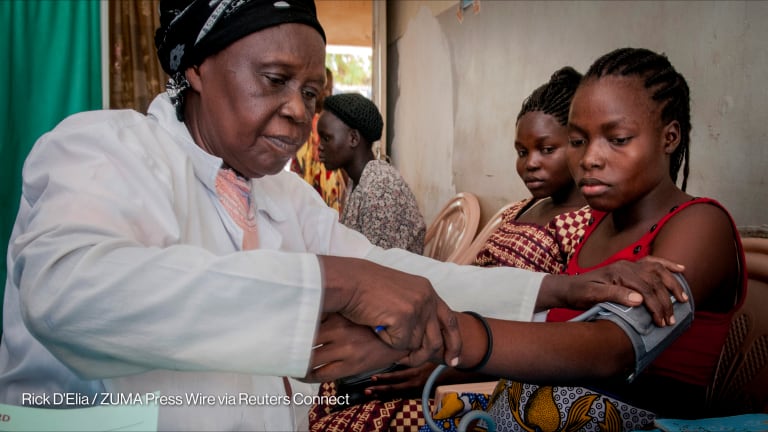
In 2013, The Network of African Science Academies, in collaboration with the United States National Academies, convened a committee of 16 diverse experts, including me, to discuss the current state of tobacco use, prevention and control policies in Africa.
The committee’s findings, recently published in Preventing a Tobacco Epidemic in Africa, were alarming: Without comprehensive tobacco prevention and control policies, smoking prevalence in Africa will increase by nearly 39 percent by 2030, from 15.8 percent in 2010 to 21.9 percent. While tobacco use and tobacco-attributable mortality rates in Africa are currently among the lowest in the world, data indicate that without intervention, this situation will change dramatically for the worse.
The committee’s report also revealed some startling findings about tobacco as it relates to Africa’s women and youth. Though fewer African women smoke, they are disproportionately affected by tobacco through not only the direct effects of smoking, but also secondhand smoking and the secondary effect of smoking on pregnant women and their fetuses. African youth, meanwhile, represent the largest potential market for tobacco, and levels of smoking in this highly vulnerable population will continue to rise as aggressive tobacco marketing encourages the uptake of smoking. Both women and youth are also targets of covert messaging from the tobacco industry that is designed to mainstream smoking behavior as an element of evolving social norms and empowerment.
A tobacco ‘epidemic’
Unfortunately, most African countries have a long way to go to avert the impact of the rapidly growing tobacco epidemic. While there has been strong commitment and leadership in some countries, the progress in tobacco control has been disappointingly slow in many countries, and only a handful of countries have fully implemented the provisions of the World Health Organization’s Framework Convention on Tobacco Control.
What can be done to stop this health crisis from happening? African leaders and other stakeholders need to take immediate action. The committee’s report outlines strategies to put tobacco control policy on the African leadership’s agenda and calls upon other groups, such as civil society organizations, to share in the responsibility of protecting those most vulnerable to misleading and deceitful messaging by the tobacco industry.
Specifically, the committee’s report urges the African Union heads of state and government to provide leadership in tobacco prevention and control for the continent, with a central coordinating mechanism housed at the AU Commission that enables member states to share their challenges, progress, opportunities and requests for assistance on a yearly basis.
Implementation and enforcement
In addition, African governments should prioritize the implementation and enforcement of the tobacco control measures called for in the FCTC, through actions such as protecting public health policies “from commercial and other vested interests of the tobacco industry”; using taxes to increase the price of tobacco products for the purpose of reducing demand; providing protection from exposure to secondhand smoke in indoor public places, workplaces and on public transport; promoting accurate and visible tobacco product packaging and labeling that includes health warnings; and instituting bans on tobacco advertising, promotion and sponsorship.
The committee’s report also urges nongovernmental organizations, academic institutions, research organizations and others to develop multisectoral partnerships, working with local and national governments to build community-level support and incentives that reduce access and exposure to tobacco.
As stated in the WHO’s 2013 Global Tobacco Epidemic report, “although tobacco use continues to be the leading global cause of preventable death, there are proven, cost-effective means to combat this deadly epidemic.” We now have a roadmap for action on tobacco control and use in Africa. It is time to take real action to address a crisis in the waiting.
Want to learn more? Check out the Healthy Means campaign site and tweet us using #HealthyMeans.
Healthy Means is an online conversation hosted by Devex in partnership with Concern Worldwide, Gavi, GlaxoSmithKline, International Federation of Pharmaceutical Manufacturers & Associations, International Federation of Red Cross and Red Crescent Societies, Johnson & Johnson and the United Nations Population Fund to showcase new ideas and ways we can work together to expand health care and live better lives.
Search for articles
Most Read
- 1
- 2
- 3
- 4
- 5








